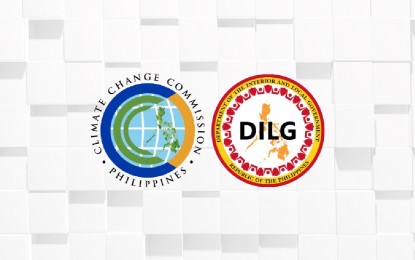
MANILA – A webinar this week will further help mainstream the climate change adaptation and mitigation in annual investment programs (AIPs) of local government units (LGUs) nationwide.
Climate Change Commission (CCC) and the Department of the Interior and Local Government (DILG) have partnered on holding the Local Climate Change Expenditure Tagging (CCET) Webinar to orient LGUs on the process of identifying and tagging respective climate change-related initiatives in AIPs.
It is about "putting all the resources and required information and being able to translate these into an investment program wherein it will address future impacts of climate change," CCC Commissioner Noel Gaerlan said Tuesday during the webinar.
He said preparing for such impacts is essential in building the country's resilience to climate change.
He said that CCC, DILG, and the Department of Budget and Management (DBM) came up with the CCET "so all development plans and projects of national, translated down to local, are ensured to be tagged or provided allocation for climate change action".
CCET is the process of helping LGUs identify, prioritize, and tag respective climate change programs, projects and activities (PPAs), according to the CCC.
Such a process also helps LGUs take stock of those PPAs as well as track and report respective climate change expenditures, it added.
Republic Act 9729, as amended by RA 10174, "identifies LGUs as the frontline agencies in formulating, planning and implementing climate action in their communities," CCC noted.
Scientist Dr. Rodel Lasco, a University of the Philippines-Los Banos professor, said the Earth's temperature will continue to rise, further changing climate, if countries worldwide fail to mitigate their respective greenhouse gas (GHG) emissions.
He said GHG emissions accumulate in the atmosphere and trap heat, warming Earth.
That warming is increasing and becoming unhealthy for Earth and people due to continuing accumulation of GHG emissions, he noted.
"We're nearing a worst-case scenario," he said during the webinar, warning even slight additional warming will bring Earth closer to a climate change that will adversely affect life on Earth.
Food and water shortage are among climate change-related problems, he cited.
DILG OIC-Undersecretary Marlo Iringan reiterated the need for LGUs to act fast so the country can help mitigate GHG emissions and better adapt to the changing climate.
"Climate change is a global concern requiring local action," he said during the webinar.
He noted CCET can help LGUs nationwide prioritize local action for building climate resiliency.
"There's a need for LGUs to act now," he said, noting it is cheaper to spend on disaster preparedness and mitigation than on disaster response and rehabilitation.
Spending PHP1 on disaster preparedness and mitigation can help save about PHP7 in disaster response and rehabilitation, he said.
The webinar on Tuesday was for LGUs in Luzon.
CCC and DILG scheduled the same webinar on Wednesday (May 5) and Thursday (May 6) for LGUs in the Visayas and Mindanao, respectively.
Earlier, CCC, DILG, and DBM issued Joint Memorandum Circular (JMC) 2014-01 which encourages LGUs nationwide to track their respective climate expenditures in AIPs.
The agencies eventually issued JMC 2015-01, amending the 2014 circular to revise guidelines for tagging and tracking LGUs' climate expenditures.
CCC previously said several webinars conducted last year also sought to institutionalize CCET in national and local budget programming and expenditure tracking processes. (PNA)
